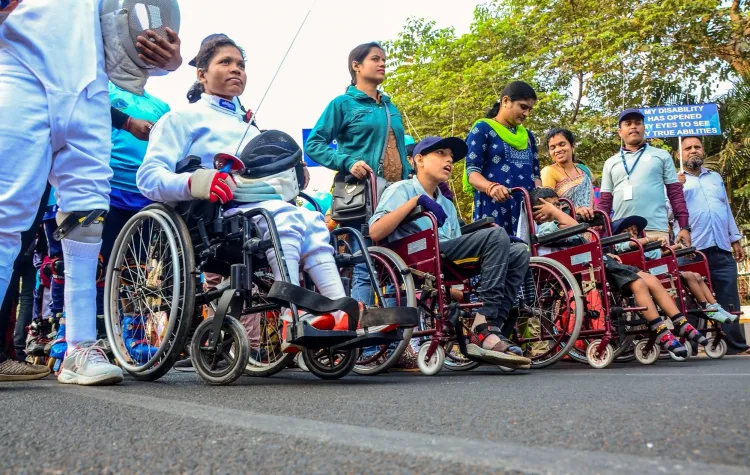Should Disability Services Include Health Screening and Stress Management for Caregivers?

Synopsis
Key Takeaways
- Caregivers of children with disabilities often face significant stress impacting their health.
- Support systems are crucial for the well-being of caregivers.
- Community-based centers can provide comprehensive assistance.
- Social stigma and lack of awareness exacerbate these challenges in India.
- Recognition of caregiver rights is essential for their dignity and fulfillment.
New Delhi, July 10 (NationPress) A recent study from the National Institute of Technology (NIT) Rourkela reveals that while individuals with disabilities have recognized rights, their parents or caregivers frequently encounter significant stress that adversely impacts their physical, mental, and financial well-being. This study emphasizes the need to establish proper support systems for caregivers of children with developmental disabilities, such as autism and attention deficit hyperactivity disorder (ADHD).
Published in the Asia Pacific Journal of Social Work and Development, the research team explored how the constant demands of caregiving can deteriorate a parent’s physical health, ultimately diminishing their overall quality of life.
The findings indicate that raising children with developmental disabilities poses unique and often enduring challenges, including teaching basic self-care to manage behavioral and sensory issues. This can lead to profound emotional fatigue and physical symptoms like headaches, ulcers, chronic pain, and fatigue, particularly affecting mothers.
Significantly, the study revealed that while physical health partially explains the stress impact on parents, it does not address other challenges, such as financial strain.
The researchers advocate for the integration of caregiver health screening and stress management into pediatric disability services. They also propose the establishment of community-based “one-stop” support centers that provide families with access to medical, mental health, and financial assistance in one location.
“While disability rights are rightly acknowledged, the invaluable role of caregivers often remains overlooked. Caring for a child with developmental disabilities should not solely fall on parents; it is a collective responsibility that includes family, neighbors, and society,” remarked Dr. Ramakrishna Biswal, Associate Professor, Department of Humanities and Social Sciences, NIT Rourkela.
The research team surveyed 400 parents of children with conditions such as autism, ADHD, cerebral palsy, and multiple disabilities.
In India, these challenges are frequently exacerbated by social stigma, lack of awareness, and limited access to specialized care. Many parents report feeling isolated from their communities and unable to receive adequate support from extended family. Healthcare, therapy, and respite services are often insufficient in numerous regions.
“Caregiving is a challenging journey, but with non-judgmental support and genuine cooperation from trusted individuals and communities, caregivers can find strength, relief, and validation. We must recognize their rights to ensure they also experience a life of dignity and fulfillment,” Dr. Biswal concluded.









